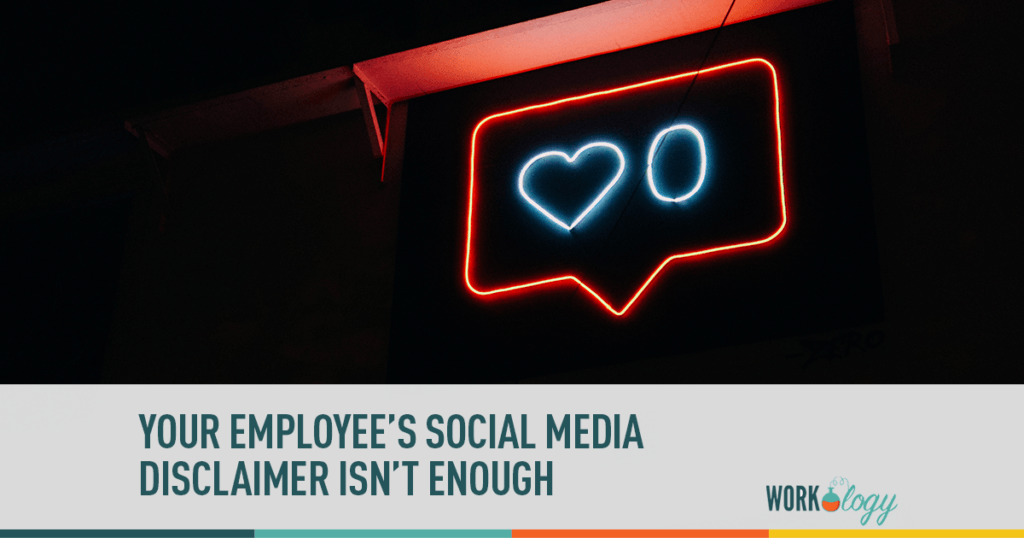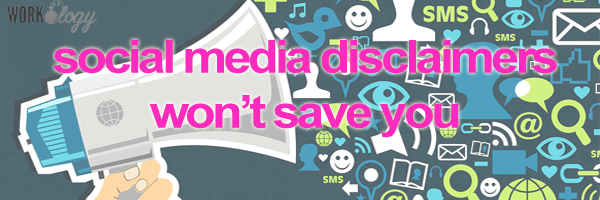When it comes to employment law, there’s nearly no policy, disclaimer or employee acknowledge that can be developed or designed in 140 characters or less. Except that’s what many business leaders and counsels are leading their employees to believe through the what I call “silence is acceptance” when it comes to policies at work. Silence is acceptance is a simple phenomenon where an employee assumes that he or she’s flying under the radar as he/she blurs the line of a workplace procedure or policy. Bosses and managers are sometimes aware through a verbal communication or just avoid the subject all together until it’s time to address.
Manager’s Non-Actions Provide Employees Acceptance Through Silence
Silence is acceptance can be a huge employment law issue when dealing with precedent and things like FMLA or ADA issues. A boss or employer let things slide maybe giving an employee extra time off work then changes their mind. This is the stuff that employment law battles are made of.
Working in HR, I’ve seen my share of silence is acceptance situations and even been the brunt of a few. If a boss is aware of an activity that they disagree or isn’t in line with policies they need to address, and employees will continue to test those boundaries. In the case of silence is acceptance, ignorance especially in employment law is not bliss. Prevention through training and awareness, not a disclaimer when it comes to social media is the best available option to protect the best interest of both parties. The Miller case discussed below is just one example in a growing list of employee terminations because of social media activities outside of work.
How Does Social Media Impact Others in the Workplace
Employers who don’t offer their employees training on social media and instead opt for signing a lame policy acknowledge regarding social media use in the workplace is not enough. Signing on the dotted line that they, the employee understand, doesn’t keep you even smart people making stupid mistakes via social media. I’ve flown under the “silence is acceptance” radar a time or two like the time I forwarded my calls to my personal cell phone when I was away from the office, or the time I started a professional blog only to be nearly fired for recruiting on LinkedIn. Generally, “silence is acceptance” becomes an issue when the boss’s boss gets wind of a practice or policy they don’t understand or agree with often hurting the employee in the process. In my two instances I knew the policies and was aware that I was flying free and clear within the guidelines. Unfortunately, my manager didn’t see eye to eye with my interpretation. It’s likely that Professor Miller’s case is the same.
The recent case of Professor Miller (no relation) who tweeted from his personal Twitter account, “Dear obese PhD applicants: if you did’t have the willpower to stop eating carbs. you won’t have the willpower to do a dissertation #truth.” Of course this tweet was shared via a public social media channel and Miller is speaking about students at his university. And rightly so, the social media hit the fan.
Miller follows up just a few minutes after the tweet you see to the left with a tweet that included a disclaimer essentially saying his tweets are his own and not represented of the university but the damage is too late. A journalism professor at another university took a quick screenshot of this initial tweet and shared with his 100,00+ Twitter followers nearly seconds after Miller published the tweet. This moment is forever engrained in the social media, the media and the inter webs The University of New Mexico is a public university and workplace policies are available to anyone including me. You can read the full UNM social media policy by clicking here, but here’s the juicy goodness below:
Be Aware of Liability: You are personally responsible for what you post on blogs and microblogs, social networks, forums, and other social media. Be sure that what you post today will not come back to haunt you. If you are unsure about a work-related posting, seek approval from your supervisor or manager before posting it.
Use a Disclaimer to Maintain Transparency: If you publish content to any website related to the work you do or subjects associated with the University, make it clear you are speaking for yourself and not on behalf of The University of New Mexico (for example, “The comment is my own opinion and may not represent The University of New Mexico’s position”).
From this, it’s clear that Miller did exactly what he was in fact instructed to do according to the university’s social media policy although he’s currently on unpaid administrative leave and the school is now dealing with thousands of articles, stories and blogs painting them in a negative context. He tweets are now protected and not available to be viewed by the general public.
Employee Social Media and Twitter Disclaimers Are Not Enough
In a recent Forbes article discussing the practice of adding social media disclaimers to employee’s Twitter accounts, I said this, “Having a disclaimer in a Twitter bio is a way to make the boss feel better if they don’t necessarily understand Twitter. It’s something that makes you sleep better.” I also advised that regular employee training on how to use social media and best practices is the best way to prevent situations in the workplace like Miller’s from happening as frequently at your workplace. It’s not a question of if a social media smack down will happen at your workplace, it’s a question of when which is why employers need to take proactive measures and plan and train for this type of scenario. For another example, click here to read about a small Christian publishing company, Tate Publishing.










